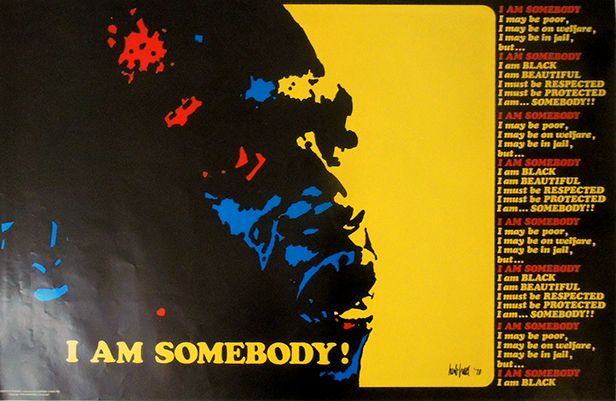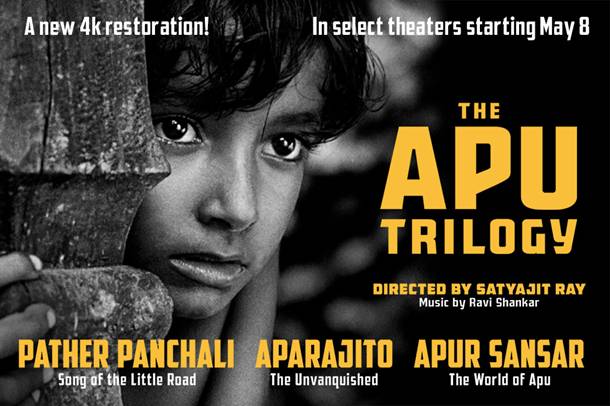A Critic's Meta Review: 5/5

I Am Somebody (REVIEW)
We will all stay together as brothers, or perish as fools.”
— Ralph Abernathy
(not to be confused with the subject of a Norm MacDonald joke about suicide that I really wish I could find a clip of)
I like Hollywood as much as anyone else, which is to say that I tolerate the constant stream of big-budget bullshit they pump out like mother’s milk on the off chance that I might stumble into a little fragment of gold that I can siphon some joy from.
At least, that has traditionally been my approach toward the consumption of cinema. However, after watching Satyajit Ray’s Apu Trilogy, I have started to look at movies in a new light. No longer am I to be a willing participant in the propping up of an industry that relies solely on the public’s short attention span and inability to bring it upon themselves to think critically about issues of substance.

Issues like hospital workers not being paid adequate wages for all of the highly taxing duties they must tend to - duties that can sometimes be the deciding factor in a patient’s living status.
In India, there was a movement that came about right around the time Ray popped on the scene, inspired by the preceding Italian cinematic movement of neorealism, that was known as “parallel cinema”. Works that emerged from this movement tended to focus more on the struggles and realities faced by everyday people and not fancy shmancy Manhattan socialites named Holly Golightly (why my mother loves Breakfast At Tiffany’s so much, I’ll never understand).
Unfortunately for me, however, I do not understand Hindi or Bangla very well - certainly not well enough to watch and understand an entire movie in which all of the dialogue is spoken in one of those languages. And since a lot of these parallel cinema flicks were not exactly Bollywood classics, at least in the traditional sense, it is pretty hard to come by versions of them that are accompanied by English subtitles.
Therein lies the problem...but is it really a problem? Because, as a result of my thirst for the real stories - not the ones spoonfed to me by popular culture and the mainstream paradigm - I took it upon myself to pinpoint an American equivalent to parallel cinema.
Well, I think I found something - or, should I say...somebody.
Let’s talk about hospital workers. More specifically, let’s talk about the fact that, at the time this documentary was made, they were being paid $1.37 an hour.
$1.37.
Even adjusted for inflation, that is absolutely absurd. In fact, to echo Coretta Scott King, it’s “not a wage; it’s an insult.”
To echo her once again, nobody should have to work “full time jobs at part time pay”, and yet people do all the time - shoot, I have before.
Is that just the nature of capitalism? Who’s to say - all I know is that, while the crowd laughed when Ralph Abernathy spoke of how, during his time in jail, he ate “macaroni and cheese - without cheese”, I had only one thought: Ralph Abernathy...the proto-vegan?
Rev. Abernathy then went on to make a rather bold yet interesting claim- that those who go to school are “traitors”, as one can learn more from marching with their local 1199 union workers than one would learn in any classroom.
He’s got a point regarding the real world, hands-on, practical experience one would get from the marching, for sure...but, still, I don’t know if I would go as far as to call folks traitors just for wanting a more traditional education.
Different strokes for different folks, mate. Some people can make more of an impact through action (karma yoga), while others prefer intellectual pursuits (gyan yoga).
Andrew Young, arguing from an economic standpoint (perhaps the most effective way to approach this issue) suggests that the best form of protest comes not from marching in the streets but from selective consumerism (i.e. don’t be buying stuff from rich folks from out of town while ignoring the businesses run by people from your own community)
He even universalizes the issue, as well, telling the cops that they, too, are being marched for as they also do not make enough money and deserve to be paid a higher salary. This is a campaign for poor folks of all stripes, not just hospital workers. Hospital workers are one domino that will lead to wage increases for all workers.
In the end, this selective consumerism ended up working; as the only things people were buying from businesses were food and medicine, they ended up foregoing $15 million in revenue. Eventually, the Medical College had no choice but to let up.
More important than all of that, however, is what was stated by one of the organizers when asked what the strike had accomplished:
“We gained recognition as human beings.”
Right on.


